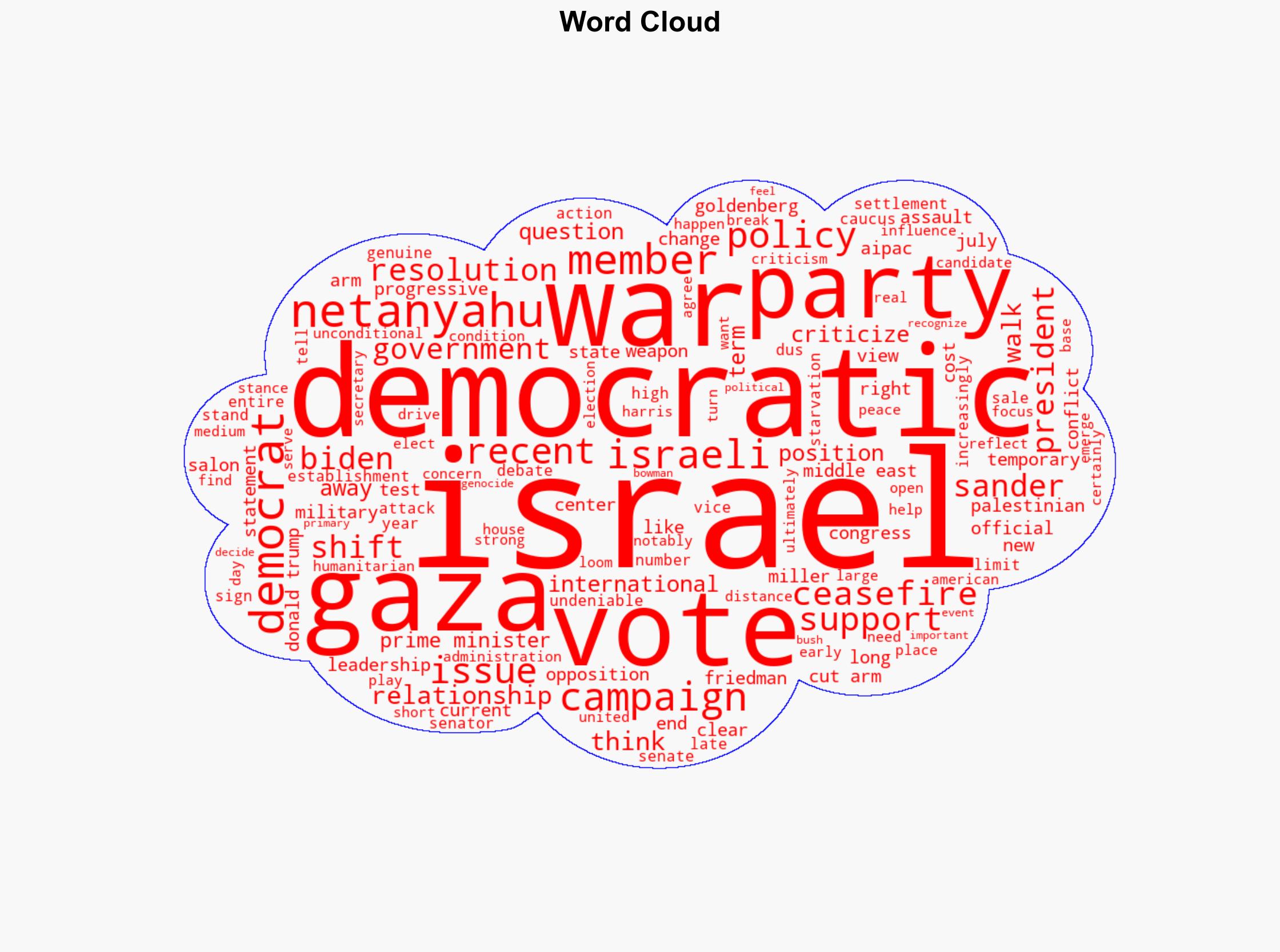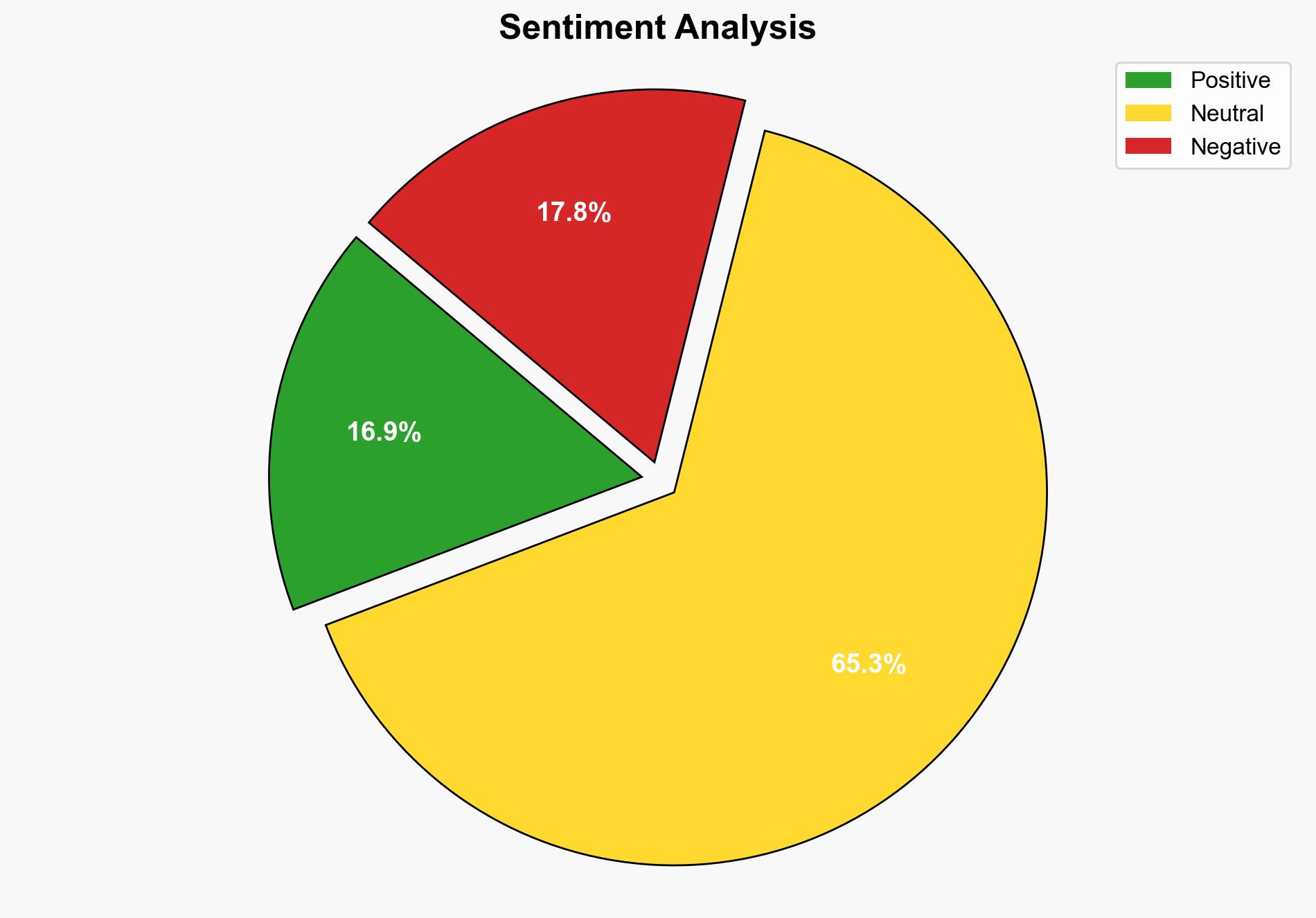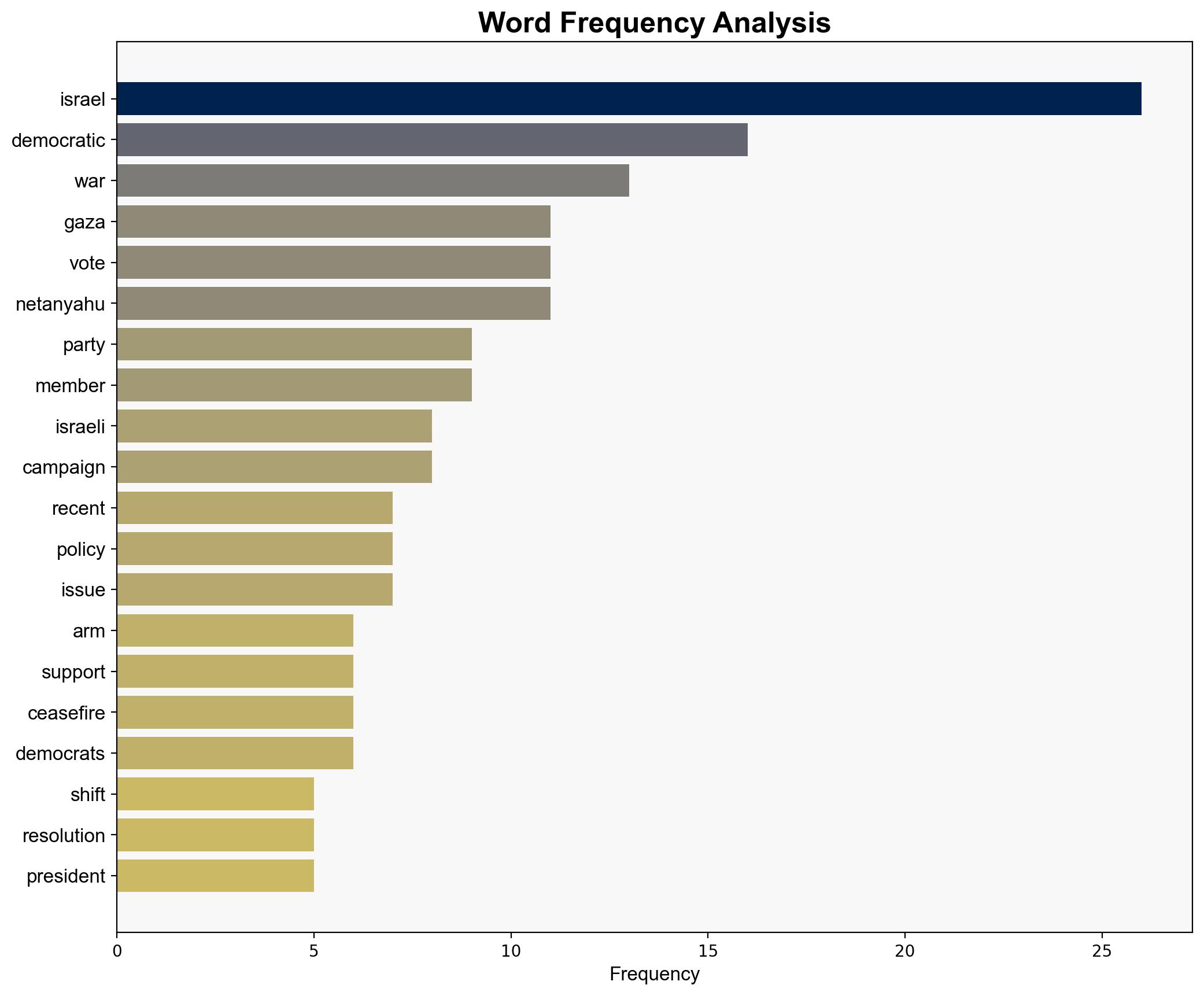Democrats may already be signaling a retreat on Israel – Salon
Published on: 2025-09-05
Intelligence Report: Democrats may already be signaling a retreat on Israel – Salon
1. BLUF (Bottom Line Up Front)
The most supported hypothesis is that the Democratic Party’s recent actions indicate a tactical adjustment rather than a fundamental policy shift regarding Israel. This is based on the temporary nature of the actions and the historical context of U.S.-Israel relations. Confidence level: Moderate. Recommended action: Monitor ongoing political discourse and legislative actions for further shifts in policy.
2. Competing Hypotheses
1. **Hypothesis A**: The Democratic Party is undergoing a genuine policy shift towards a more critical stance on Israel, influenced by changing voter demographics and internal party dynamics.
2. **Hypothesis B**: The recent actions represent a temporary tactical adjustment in response to current geopolitical circumstances and public opinion, rather than a long-term policy change.
Using the Analysis of Competing Hypotheses (ACH) 2.0, Hypothesis B is better supported due to the lack of comprehensive policy changes and the historical pattern of U.S. support for Israel despite temporary criticisms.
3. Key Assumptions and Red Flags
– **Assumptions**:
– Hypothesis A assumes a significant influence of progressive voices within the Democratic Party.
– Hypothesis B assumes that historical patterns of U.S.-Israel relations will prevail over temporary political pressures.
– **Red Flags**:
– The potential for cognitive bias in interpreting symbolic actions as substantive policy changes.
– Inconsistent data regarding the actual influence of progressive Democrats on broader party policy.
– **Missing Data**:
– Detailed insights into internal Democratic Party deliberations and strategy discussions.
4. Implications and Strategic Risks
– **Geopolitical**: A genuine shift could alter U.S.-Middle East relations, impacting alliances and regional stability.
– **Economic**: Changes in military aid could affect defense contracts and economic ties with Israel.
– **Psychological**: Perceptions of U.S. support for Israel could influence both domestic and international public opinion.
– **Escalation Scenarios**: A misinterpretation of U.S. policy shifts could lead to increased tensions in the region.
5. Recommendations and Outlook
- Monitor legislative actions and public statements from key Democratic figures for signs of enduring policy changes.
- Engage in diplomatic dialogues to clarify U.S. positions and manage expectations with Israeli counterparts.
- Scenario Projections:
– **Best Case**: Tactical adjustments lead to improved humanitarian conditions without damaging U.S.-Israel relations.
– **Worst Case**: Misinterpretations lead to regional instability and strained U.S.-Israel ties.
– **Most Likely**: Temporary adjustments with eventual return to traditional U.S. support for Israel.
6. Key Individuals and Entities
– Bernie Sanders
– Benjamin Netanyahu
– Joe Biden
– Lara Friedman
– Matt Duss
7. Thematic Tags
national security threats, geopolitical strategy, U.S.-Israel relations, political dynamics





